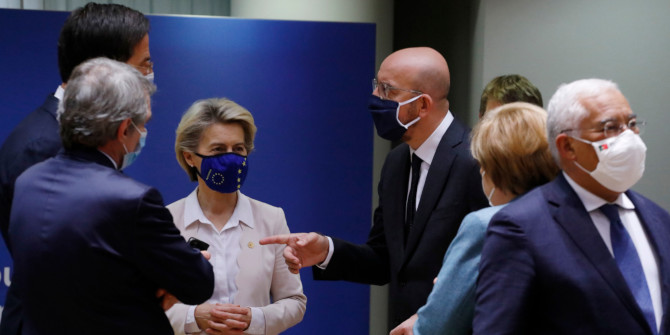Last week, the UK introduced a wage subsidy scheme that has strong similarities with the German Kurzarbeit (‘short work’) programme. Bob Hancké, Toon Van Overbeke and Dustin Voss argue that much in the UK’s approach is misguided. The German scheme works, they write, because it has three critical elements that are wholly or mostly absent in the UK. It would be a surprise, therefore, if it worked as intended – even leaving aside the potentially prohibitive shift in costs from government to employers.
The new UK wage subsidy scheme (the Job Support Scheme or JSS), introduced by Chancellor Rishi Sunak on 24 September, tries to balance the cyclical short-term problems of an economic downturn with the longer-term structural problems of adjusting to the emerging new economy. As our colleague Nick Barr points out, there are many problems with that balance. But leaving that aside, the policies are likely to be problematic for a set of deeper-rooted, institutional reasons.
The new scheme is copied almost verbatim from the existing German Kurzarbeit programme that has become something like the gold standard in this area. But crucially the performance of such schemes does not just hinge on how sensible the policies themselves are; they are also a result of the wider institutional context in which they are introduced. Three elements in particular seem vital for the success of this type of wage subsidy scheme.
Carrots and sticks aka incentives
The carrot: German employers want to safeguard their large investments in sophisticated workforce skills, while employers in the UK have little investment to protect: Most education and training is paid for by government and the individual. The stick: German employers are forced to negotiate large and expensive social plans with trade unions, while British employers can more or less unilaterally fire and pay out a ludicrous notice period (one week per year worked above two years, else zilch).
German employers thus face very strong incentives to adopt Kurzarbeit, almost regardless of the cost, while British employers face the opposite incentives. That helps understand why, as the Resolution Foundation has calculated, the scheme is simply too expensive for most employers in the UK. Those in the real world outside No 11 think it is a poor scheme because it is too expensive and contains very few incentives for employers to pick it up. In light of the carrot point above: the policy makes little sense for employers, unless they were going to do something similar on their own account anyway and can now have the government pay part of that.
German company governance
In the company, where it is implemented, the German scheme is governed by employer and works council or trade union (or other workforce) representatives, who police the fairness, correctness and fraud in its implementation. That works because this form of ‘micro-corporatism’ is deeply embedded in a thick web of long-established mutual agreements, expectations and trust (supported and shaped by vetoes that the workforce can exercise in particular areas of company organisation). Calling this a bit weaker in the UK might qualify as a euphemism.
Macro-corporatism
At a political level, the Kurzarbeit scheme is in many ways an outcome of deeply embedded tripartite arrangements – a form of political exchange – that assign rights and responsibilities to business/employers and labour and are often financially and institutionally supported, instigated or steered by government. Participating in Kurzarbeit is therefore almost a moral obligation for employers – not because German employers are fundamentally nice people but because they understand the strategic long-term benefits of having a stable, functioning macro-level governance arrangement beyond the market. Such a settlement, if it ever existed, disappeared in the Thatcherite hurricane of the 1980s.
Combined, these three points show why importing such a policy and expecting the same outcome as elsewhere is questionable at best. That might help explain why few observers have actually seen much good in it. As the days go on, we expect an avalanche of criticism of precisely those details that make the whole JSS a big mess. The opening shots were fired in the FT and the Guardian over the past few days. Added to the more fundamental critiques here, it would be a surprise to us if the scheme survived in its current form.
Note: This article gives the views of the authors, not the position of EUROPP – European Politics and Policy or the London School of Economics. Featured image credit: Number 10 (CC BY-NC-ND 2.0)





